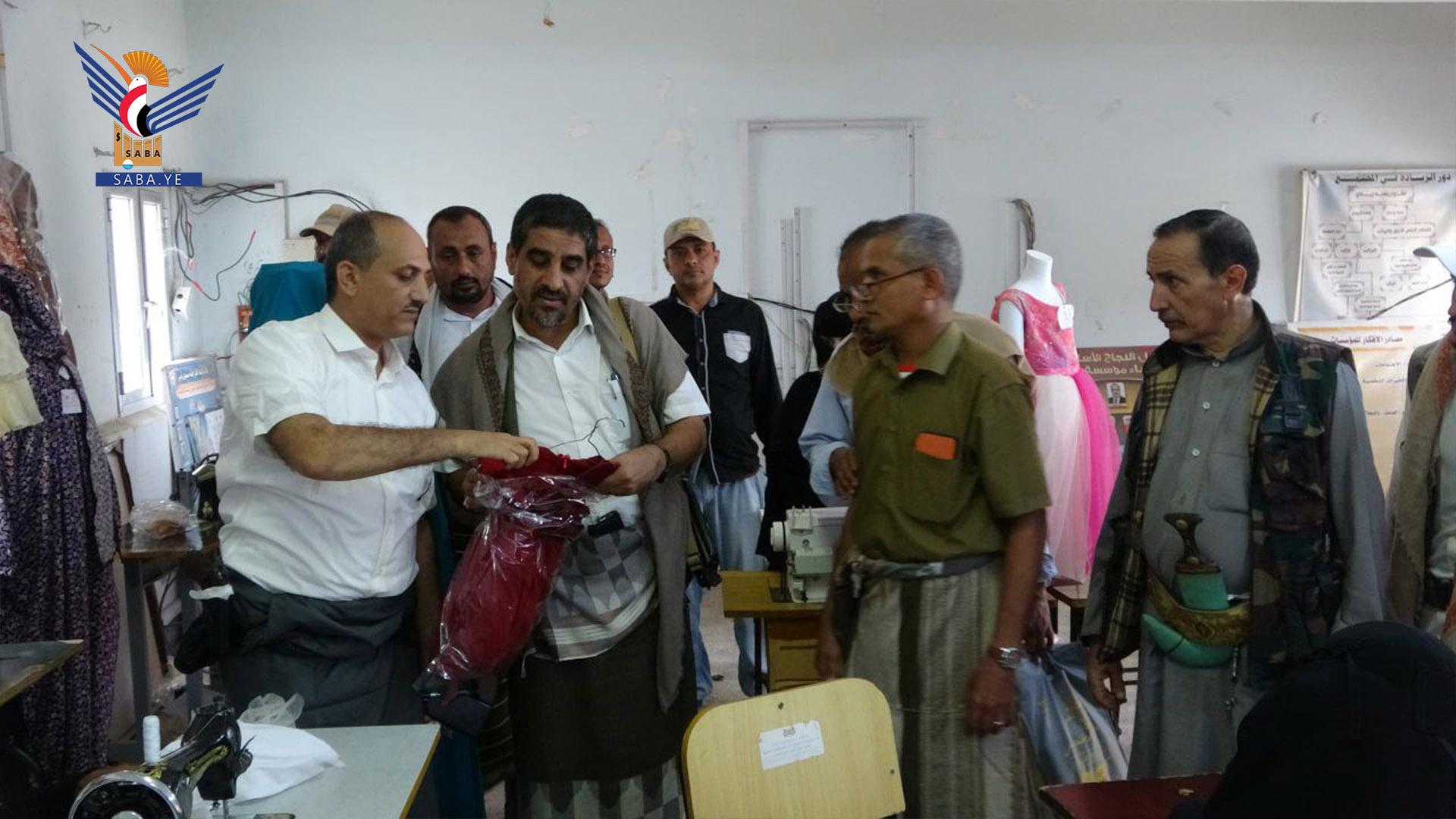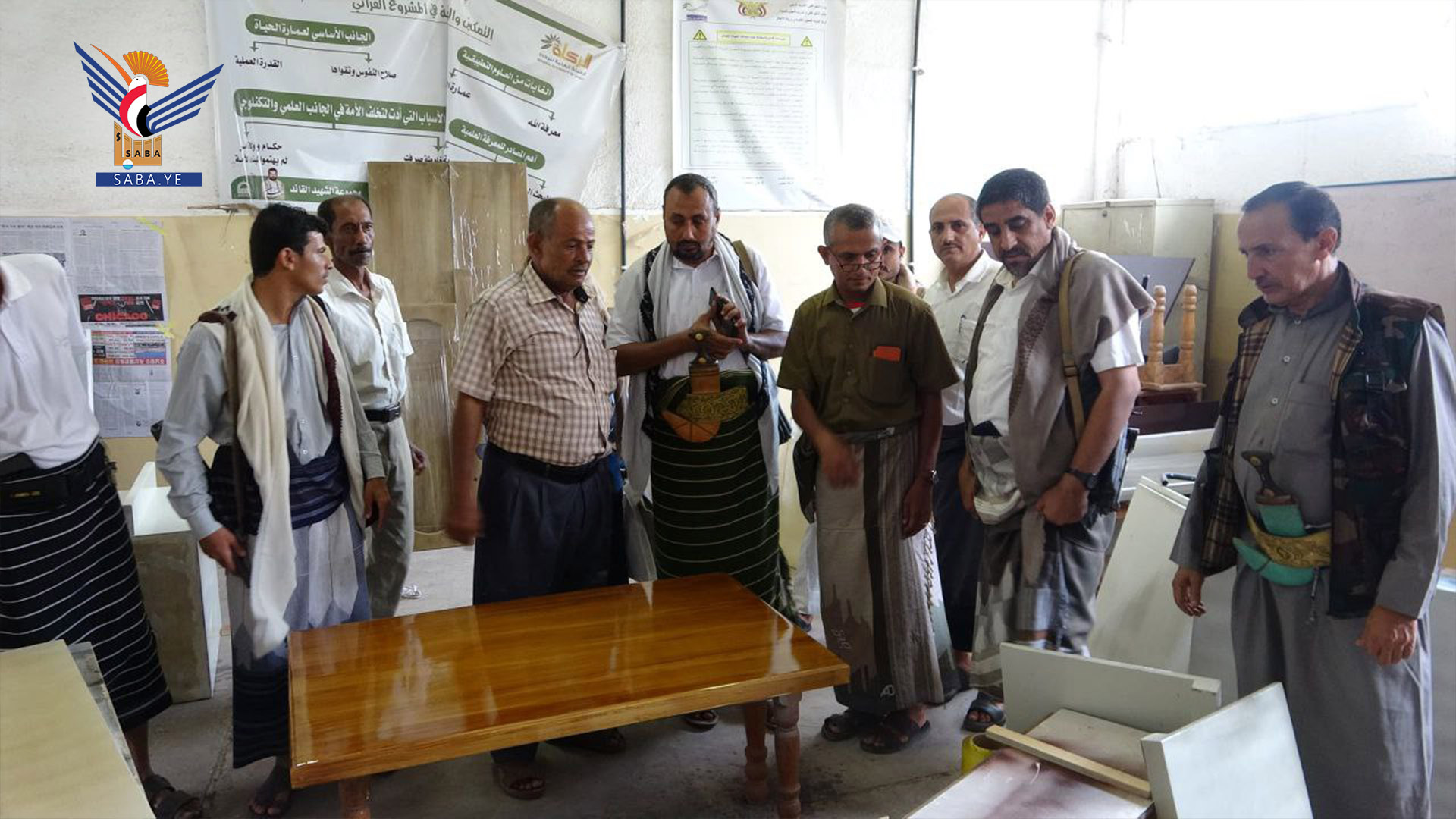
Hodeida - Saba:
Ahmed Al-Bishri, the First Undersecretary of Hodeida province, inspected on Monday the production levels of families benefiting from the economic empowerment project at the Vocational Institute in the province.
Accompanied by Mohammed Hazza’, Director of the General Zakat Authority Office in the province, Al-Bishri reviewed samples of products made by the beneficiary families, particularly ready-made garments that contribute to meeting local market demands and enhancing self-sufficiency opportunities.
He also examined the work of trainees in carpentry and furniture manufacturing as part of the vocational integration program, as well as the level of practical training they receive at the institute.
The First Undersecretary listened to program officials’ explanations regarding the nature of the training and the mechanisms for monitoring and supervising the production process.
He praised the efforts made to support productive families and develop their capabilities, stressing the importance of improving product quality and expanding marketing to ensure the sustainability of initiatives and increase beneficiaries' income.
He emphasized the need for integrated roles among relevant authorities to ensure the success of empowerment programs and achieve a tangible impact on beneficiaries' livelihoods. He also highlighted the importance of building a comprehensive production model that links training with employment and marketing.
Meanwhile, the Director of the Zakat Office explained that the authority is working to support empowerment programs through two main tracks: financing and marketing, by establishing promotional units that help showcase and market women’s products.
Ahmed Al-Bishri, the First Undersecretary of Hodeida province, inspected on Monday the production levels of families benefiting from the economic empowerment project at the Vocational Institute in the province.
Accompanied by Mohammed Hazza’, Director of the General Zakat Authority Office in the province, Al-Bishri reviewed samples of products made by the beneficiary families, particularly ready-made garments that contribute to meeting local market demands and enhancing self-sufficiency opportunities.
He also examined the work of trainees in carpentry and furniture manufacturing as part of the vocational integration program, as well as the level of practical training they receive at the institute.
The First Undersecretary listened to program officials’ explanations regarding the nature of the training and the mechanisms for monitoring and supervising the production process.
He praised the efforts made to support productive families and develop their capabilities, stressing the importance of improving product quality and expanding marketing to ensure the sustainability of initiatives and increase beneficiaries' income.
He emphasized the need for integrated roles among relevant authorities to ensure the success of empowerment programs and achieve a tangible impact on beneficiaries' livelihoods. He also highlighted the importance of building a comprehensive production model that links training with employment and marketing.
Meanwhile, the Director of the Zakat Office explained that the authority is working to support empowerment programs through two main tracks: financing and marketing, by establishing promotional units that help showcase and market women’s products.



